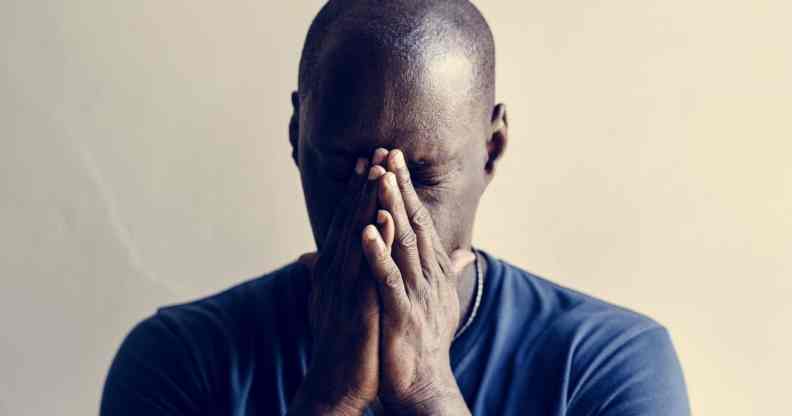Queer Black men living in racist, queerphobic states suffer devastating health impacts, study confirms

The mental and physical health of queer Black men is provably worse in oppressive states (Envato)
Eliminating racist and anti-LGBT+ policies is essential to improving the overall health of queer Black men, new research has proved.
The study, published in the American Journal of Preventive Medicine, surveyed a sample of 1,379 Black and 5,537 white queer men across the US and reported on their psychological and behavioural health.
The results showed a clear link between structural oppression and higher levels of anxiety and heavy drinking in Black men, as well as lower levels of HIV testing.
“Our results illuminate the compounding effects of racist and anti-LGBTQ policies and their implementation for Black gay, bisexual, and queer men,” said lead author Devin English, an assistant professor at Rutgers School of Public Health.
“To improve mental and physical health and support their human rights, these oppressive policies must be changed.”
The study measured structural racism on an index assessing state-level Black-white inequities in incarceration rates, educational attainment, economic indicators, employment status and residential segregation.
Anti-LGBT+ policies were measured using the Human Rights Campaign State Equality Index, which that grades each state based on how its laws affect LGBT+ communities, including permitting hate crimes, conversion therapy and discrimination in housing and employment.
Black queer men living in states with high levels of both racism and anti-LGBT+ oppression were exponentially more likely to see themselves as a burden to others than those in states with lower levels of structural oppression.
The effect of this was reflected in poorer behavioural and psychological health, including higher levels of anxiety and heavy drinking, and lower rates of HIV testing.
Interestingly the study found no association between structural oppression and negative health outcomes in white queer men, conclusively proving that Black LGBT+ men are disproportionately affected by these problems.
“The finding that anti-LGBTQ policies were associated with negative psychological and behavioural health outcomes among Black, but not white, sexual minority men suggests this oppression disproportionately affects Black sexual minority communities,” English said.
“To effectively combat the negative health effects of structural oppression for Black sexual minority men, clinicians, researchers and policymakers must advocate for the passage of anti-oppression laws, like the Equality Act, that protect these men from interpersonal and institutional discrimination.”

